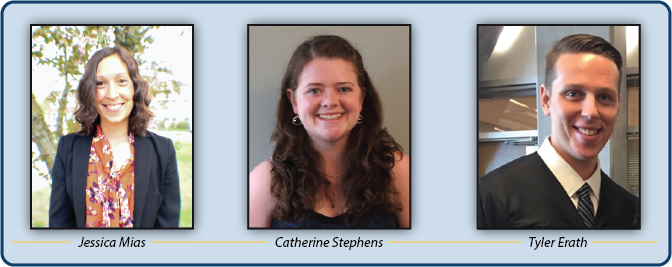Usually when we give people instructions, we are changing their behavior. It is necessary to understand how instructions can affect the way people respond when exposed to contingencies that follow and do not follow the instructions they were given. Galizio (1979) examines the effects instructions have on behavior. At the completion of this CE program, the learner will be able to describe the effect instructions have on contingency-shaped behavior and identify ways instructions can be given to minimize this effect.
About this course:
This course uses a fluency model. This model involves answering a series of questions, first during acquisition modules (one hour per module), and then again during fluency modules (which have a shorter time criterion). The fluency model provides many opportunities for practice. Each question is accompanied by a hint, to be used unless you are absolutely certain you know the answer. When hints are used properly, fluency-based courses can be errorless or near-errorless. Keep in mind that fluency-based courses employ a practice (active student responding) model that involves completing learning exercises that are similar to tests, but include hints and feedback. Concepts are learned when users consistently make correct discriminations on questions designed to teach concepts and promote generalization. This course is recommended for BCBAs and BCaBAs.
Here's how it works:
- Purchase this course (see above).
- Read the following free article: Contingency-shaped and rule-governed behavior: instructional control of human loss avoidance, by Mark Galizio, 1979. This article can be downloaded for free via the following link: https://www.ncbi.nlm.nih.gov/pmc/articles/PMC1332789/pdf/jeabehav00090-0055.pdf.
- Complete the acquisition modules to 100% correct.
- Complete the fluency modules to 100% correct.
- Once all acquisition and fluency modules have been completed to 100% correct, go to the Finishing Up module, complete the short survey, and print your certificate for BACB credits.
- To manage your CE credits on the BACB web site, please use our ACE Provider # 0P-02-0017.
Objectives:
- Select statements that accurately reflect why Galizio (1979) states that it is difficult to make direct comparisons between the previous research on instructions (e.g., Ayllon & Azrin, 1964; Kaufman et al., 1966).
- Select statements that correctly identify the variables involved with the theoretical controversy regarding instructional control.
- Select the statement that best describes the theoretical explanation for the reinforcing properties of instructions (discussion).
- Select statements that indicate instructional control is rule-governed behavior.
- Select statements that accurately represent the main points in the discussion.
- Select implications of future studies based on these results.
- Given a specific situation, select whether instructions or the schedule are controlling behavior.
About the Authors:
This course was created through a partnership between Behavior Development Solutions and the Cambridge Center for Behavioral Studies (https://behavior.org). The Cambridge Center for Behavioral Studies accepts nominations for new inductees into the Distinguished Scholars of the Cambridge Center for Behavioral Studies. The mission of the Distinguished Scholars is to support the advancement of elite graduate students on their journeys towards becoming leaders in behavioral science. To learn more about the Distinguished Scholars program, please visit: https://behavior.org/wp-content/uploads/2018/07/Distinguished-Scholars-2018-2019-1.pdf
BDS is honored to work with the following three Distinguished Scholars who authored this CE course:

Jessica Mias
Jessica Mias is a doctoral student at Simmons College, pursuing a Ph.D. in Applied Behavior Analysis under the advisement of Dr. Gretchen A. Dittrich. She earned her Master’s degree in Early Childhood Education at Eastern Connecticut State University and was a teacher prior to becoming a BCBA. Her research interests are varied and include increasing activity for healthy, underactive adults, instructional and curriculum design for individuals with developmental disabilities, as well as the establishment of stimulus control for auditory-visual conditional discrimination tasks. Jessica currently serves as District BCBA for a public school district. In addition, Jessica has been a part-time lecturer at Northeastern University, and an adjunct instructor at Simmons University.
Catherine Stephens
Catherine Stephens has a B.S. in Psychology from Georgia Tech and is currently in the Behavior Analysis Ph.D. program at West Virginia University. Her research focus is using behavior analysis to improve education.
Tyler Erath
Tyler Erath, MA, is a third-year doctoral student in the department of applied behavioral science at the University of Kansas working under the supervision of Dr. Florence DiGennaro Reed in the Performance Management Laboratory. He obtained his bachelor’s degree in psychology and his master’s degree in experimental psychology from Appalachian State University, working with Dr. Cynthia Anderson. Broadly, Tyler’s research interests include staff training, performance management, and behavioral consultation. In his free time, he enjoys cooking, exploring the outdoors, collecting books, and chatting about craft beer.
Supporting the Mission of the Cambridge Center
A portion of the proceeds from the sale of this course is given to the Cambridge Center for Behavioral Studies, a non-profit organization whose mission is to advance the scientific study of behavior and its humane application to the solution of practical problems, including the prevention and relief of human suffering. We are proud to support their efforts. Please visit their website (https://behavior.org/), consider signing up for their newsletter, and follow them on facebook.

Mandatory Disclaimer:
The Behavior Analyst Certification Board®, Inc. does not sponsor, approve, or endorse Behavior Development Solutions, the material, information, or products described herein.
(Note that the above disclaimer does not mean that the BACB disapproves this product. They simply don't endorse any CE products or events and they want you to know this. However, they do approve providers and BDS is an Approved CE Provider. Therefore, you can rest assured that your CE credits will be accepted by the BACB.)
System Requirements:
Program issues may occur due to the use of an incompatible browser.
For a list of compatible browsers and devices, and recommendations click here.